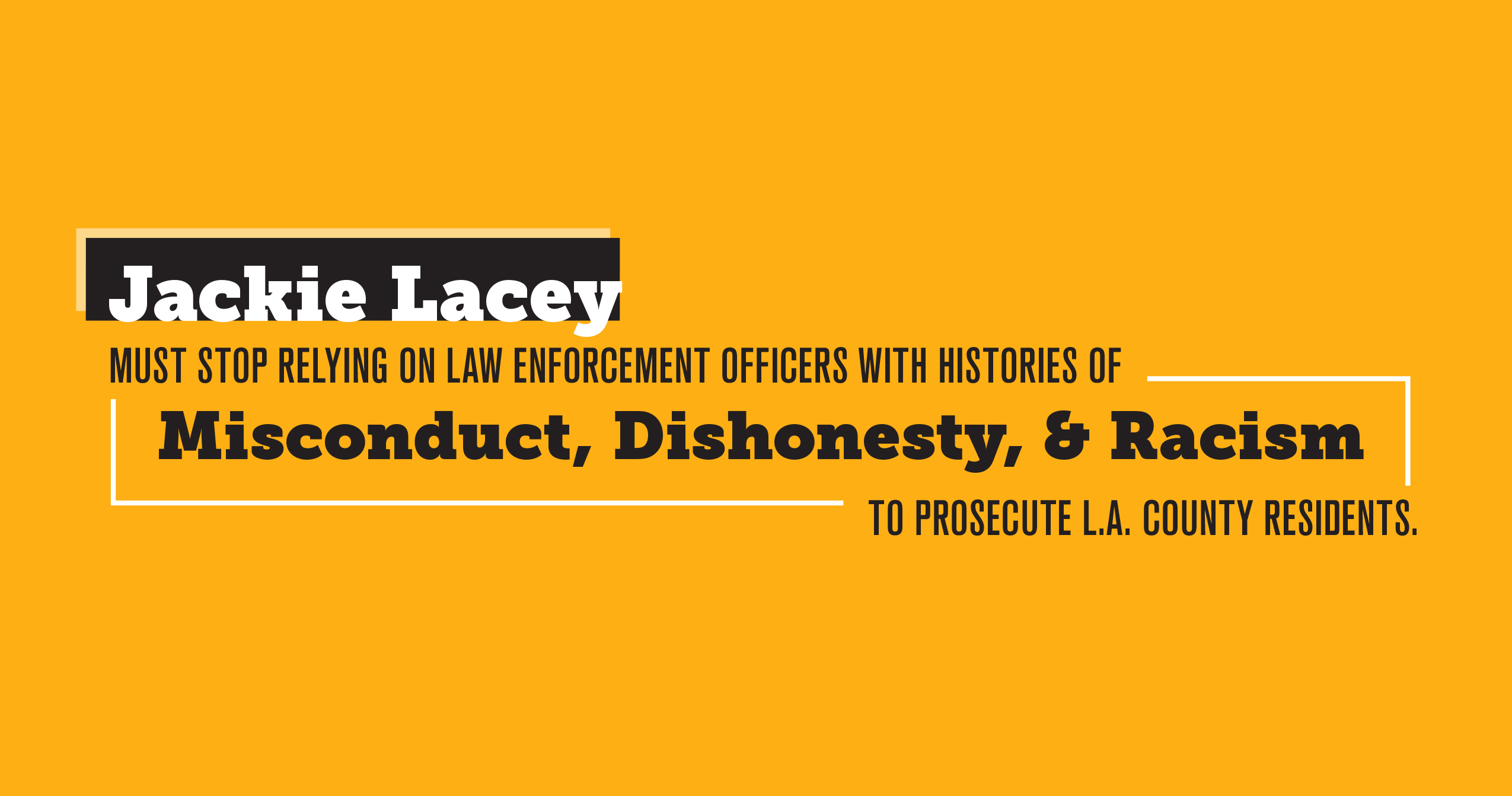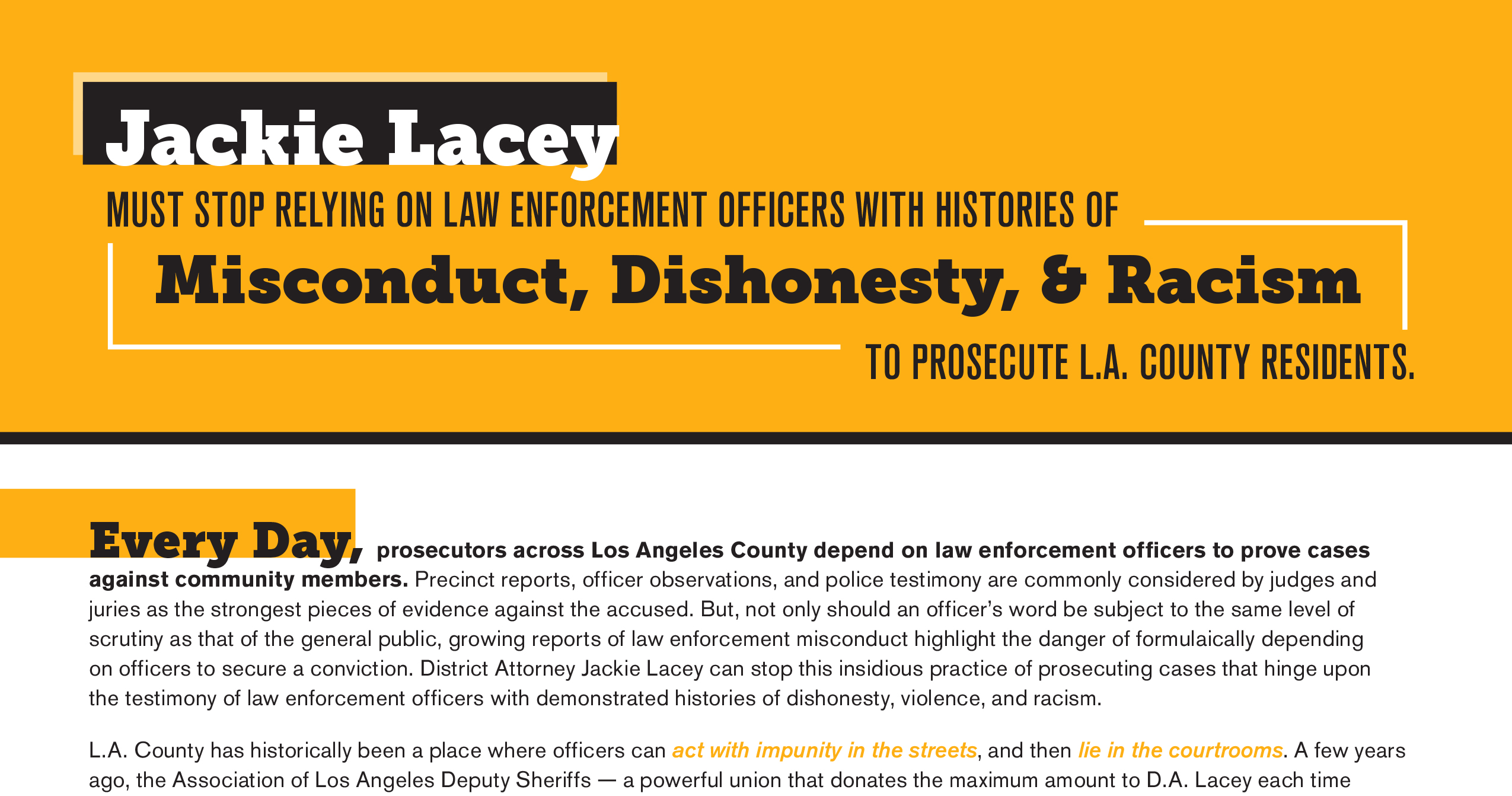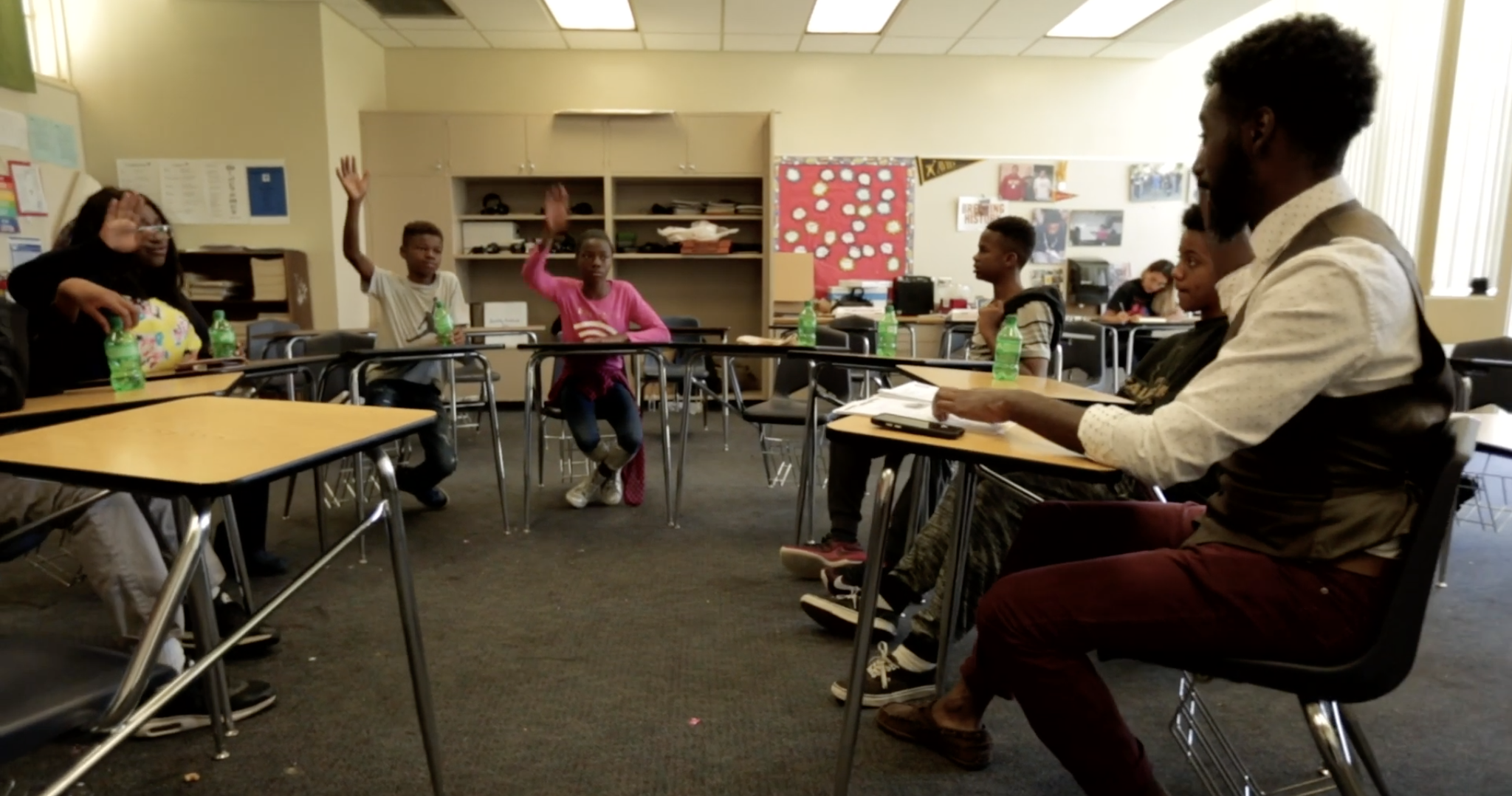Every Day, prosecutors across Los Angeles County depend on law enforcement officers to prove cases against community members. Precinct reports, officer observations, and police testimony are commonly considered by judges and juries as the strongest pieces of evidence against the accused. But, not only should an officer's word be subject to the same level of scrutiny as that of the general public, growing reports of law enforcement misconduct highlight the danger of formulaically depending on officers to secure a conviction. District Attorney Jackie Lacey can stop this insidious practice of prosecuting cases that hinge upon the testimony of law enforcement officers with demonstrated histories of dishonesty, violence, and racism.
L.A. County has historically been a place where officers can act with impunity in the streets, and then lie in the courtrooms. A few years ago, the Association of Los Angeles Deputy Sheriffs — a powerful union that donates the maximum amount to D.A. Lacey each time she runs for office — sued former Sheriff Jim McDonnell to stop him from sharing a list of 300 deputies with documented histories of dishonesty and other misconduct. As the California Supreme Court continues to review this case, newly-elected Sheriff Alex Villanueva has re-hired deputies previously fired for using unreasonable force and making false statements. Thus, it is no surprise that residents have little faith in those who have sworn to serve and protect. Last year, D.A. Lacey responded to outrage over her reliance on dishonest and abusive officers by instituting a disclosure policy mandating that defendants be informed of misconduct in an officer's past. But notification of wrongdoing is not enough. As District Attorney, Lacey has the power to block the influence of these officers. She can start by refusing to base prosecutions on officers who cannot be trusted.
Activist Patrisse Cullors recently shined a light on this important issue, calling on D.A. Lacey to stop building cases on unreliable law enforcement officers. Every prosecutor has a duty to seek justice. This mandate requires evaluating the credibility of all witnesses, including law enforcement. If D.A. Lacey hopes to ever become the public servant that Angelenos deserve, she must confront her office's focus on obtaining convictions at all costs and join the growing number of top prosecutors across the country using "Do Not Call" lists for untrustworthy officers.
The destructive practice of relying on racist, violent, and dishonest officers to prosecute L.A. residents must stop immediately. Tainted prosecutions lead to false convictions and make our communities less safe. Relying on the word of an officer who cannot be trusted harms both the victim and the accused, destabilizing families, and compromising the integrity of our criminal justice system. As law enforcement unions work tirelessly to cover up documented instances of lying, violence, and abuse, the time has come for D.A. Lacey to take an affirmative stance against this injustice.
We urge D.A. Lacey to immediately develop and implement a "Do Not Call" list, requiring all prosecutors in her office to decline cases that rely on statements from officers with histories of misconduct, dishonesty, racism, or bias. Her office should also reject all new cases and search warrant requests from officers on this list. Any case that involves officers named on the "Do Not Call" list will be undermined by their own misconduct, and as a result should be heavily scrutinized and subject to dismissal. Discriminatory and dishonest law enforcement practices are crippling L.A. County. Now is the time for change.
We can't wait any longer for justice.
Signed,
ACLU SoCal
Beit T'Shuvah
Bend the Arc Jewish Action
Black Lives Matter-LA
Color of Change
Community Coalition
Council on American-Islamic Relations (CAIR)
Courage Campaign
Californians United for a Responsible Budget (CURB)
Democratic Socialist of America-LA Prison Abolition Committee
Dignity and Power Now
East Area Progressive Democrats
Hang out and Do Good (HODG)
Immigrant Legal Resource Center (ILRC)
Interfaith Communities United for Justice and Peace (ICUJP)
Justice LA
Justice Not Jails, Interfaith Movement for Human Integrity
LA Forward
LA Voice
Smart Justice California
White People for Black Lives (WP4BL)
Date
Monday, July 22, 2019 - 2:15pmFeatured image



